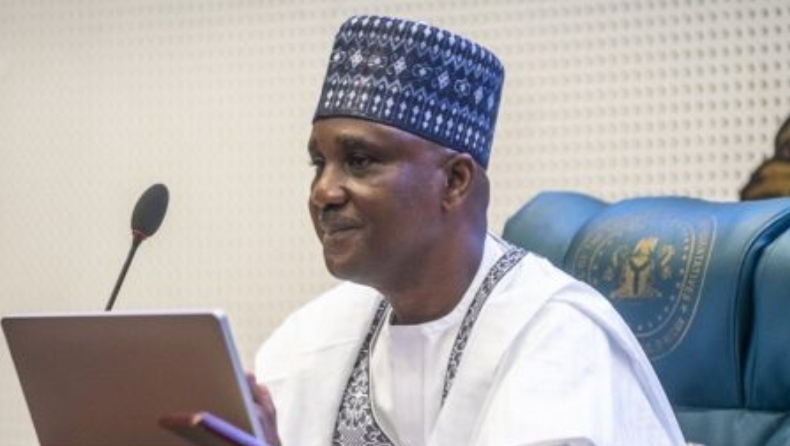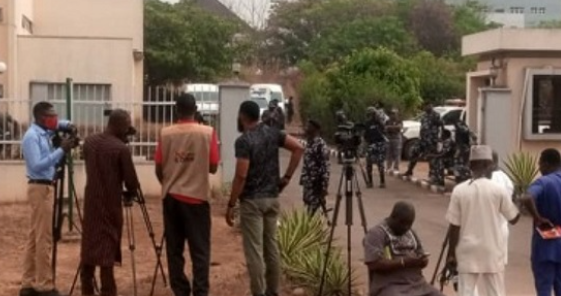Speaker of the House of Representatives, Tajudeen Abbas, on Monday, pledged commitment to the appropriate legislation that will foster digital learning and technical education in the country.
He said this during a public hearing organised by the House Committee on Federal Polytechnics and Higher Technical Education on four Bills seeking to establish the National Vocational Centre; Federal Artificial Intelligence Institute, Aliade, Benue State; Federal College of Science and Technology, Askira-Uba, Borno State; and National Institute for Technical and Vocational Education, Wamba, Nasarawa State.
The Speaker also said Polytechnic education would continue to be relevant to the Nigerian economy for the much-needed industrial development.
Abbas who was represented by the member for Katagum Federal Constituency of Bauchi State, Rep Auwalu Gwalabe, said what is required is a strong collaboration on the side of the government and all stakeholders.
He pointed out that in recent years, there has been an increasing recognition of the important role that science, technical and vocational education plays in national development.
He said with the emergence of new technologies such as artificial intelligence, it is no longer sufficient for educational institutions to merely impact theoretical knowledge.
Abbas stressed that youths must be equipped with practical skills that will enable them to thrive in an ever-evolving technologically driven job market.
He said the House was committed to ensuring access to quality education as well as improving educational infrastructure and teacher quality.
Abbas said the public hearing was a reflection of the desire and commitment as a House to prioritise technical and vocational education as part of the ongoing social sector reform and development of the present administration.
He said reforming and modernising science and technical education are critical steps towards promoting skills acquisition and empowering our youths to contribute meaningfully to the economic growth and development of Nigeria.
He said the ongoing fight against insecurity must as a matter of necessity consider the provision of functional education to our students and youths to ensure they are gainfully engaged.
“We are hoping, therefore, that the eventual establishment of these proposed science and technical institutions will provide access to quality technical education, address the skills gap by equipping our graduates with employable skills, promote innovation and entrepreneurship as well as support the current effort of the government to diversify the economy,” he said.
He said the establishment of these institutions is a testament to the resolve to bridge the gap between education and employment.
“These proposed institutions will serve as beacons of excellence – providing qualitative education that meets international standards while also being tailored to meet local needs.
Nigeria’s economy has demonstrated potential for recovery, says Speaker Abbas
“Therefore, today’s hearing aligns seamlessly with our Legislative agenda as mentioned earlier, aimed at enhancing the educational framework within Nigeria.
We recognise that in an increasingly competitive global environment, our youths must have the relevant skills and knowledge,” he said.
Abbas said the main objectives of establishing these higher technical institutions are to provide qualitative education in science, skills acquisition, art, and technical and vocational education.
These initiatives are not merely legislative proposals, they represent a commitment to our nation’s future – a future where education serves as a cornerstone for economic growth, social mobility, and national development.
The establishment of these institutions will ensure that quality education in science, skills, arts, technical and vocational training becomes accessible to all Nigerians.
The House of Representatives as a responsive institution has recognised the critical importance of education as a key driver in the reform and development of the social sector in Nigeria.
This is because the quality of human capital, which is necessary for development, will largely depend on the quality of education. Education must not only be qualitative but must also be accessible.
I therefore urge us all to remain focused, objective and constructive in our inputs, submissions and opinions. Through our robust oversight, the House will continue to ensure transparency and accountability in the governance of our educational institutions,” he said.
Chairman of the Committee, Rep Fuad Kayode Laguda, said each of the Bills is designed to improve Nigeria’s educational development and to promote sustainable human capital development necessary for a self-reliant society.
He said there is a need to prioritise and recognize the advantages that come with Science, Technology, Engineering, and Mathematics (STEM) in driving economic growth.
Furthermore, he said, there is a need for adequate empowerment of Nigerian youths with knowledge of technologies to adequately optimise their contributions to Nigeria’s industrialization.
The lawmaker said the passage of these Bills into Law would not only ensure that the workforce is technologically empowered but can also be used to tackle the issues of unemployment, wealth creation, poverty reduction, and insecurity and as a veritable tool in curbing youth restiveness.
“As you may be aware the main objectives of the establishment of vocational, entrepreneurship and technical skills acquisition Institutions in Nigeria is aimed at training technicians and middle-level personnel who will act as catalysts for rapid industrialization and the development of our real sector of the economy.
“There is the need, therefore for all the stakeholders here present to be dedicated and committed for a purposeful deliberation as well as making positive inputs and opinions on all the contending issues of the Bills in order to further enrich the content and intendment of the proposed laws. However, the contributions of all the stakeholders here present are important for the success of these Bills which seek to address contingent economic issues in Nigeria.”
© CDA News





